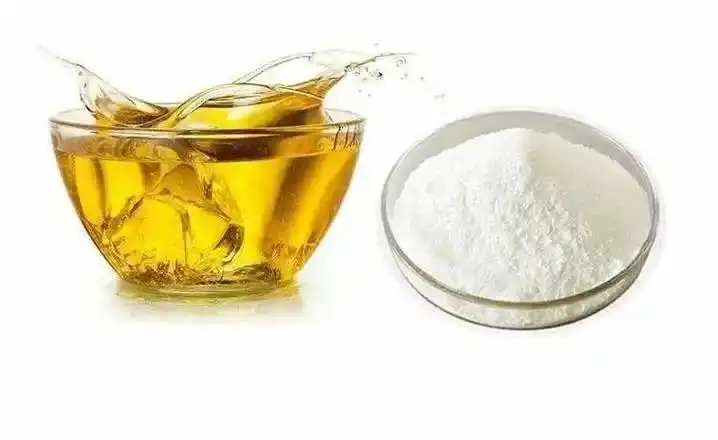- English
- French
- German
- Portuguese
- Spanish
- Russian
- Japanese
- Korean
- Arabic
- Greek
- German
- Turkish
- Italian
- Danish
- Romanian
- Indonesian
- Czech
- Afrikaans
- Swedish
- Polish
- Basque
- Catalan
- Esperanto
- Hindi
- Lao
- Albanian
- Amharic
- Armenian
- Azerbaijani
- Belarusian
- Bengali
- Bosnian
- Bulgarian
- Cebuano
- Chichewa
- Corsican
- Croatian
- Dutch
- Estonian
- Filipino
- Finnish
- Frisian
- Galician
- Georgian
- Gujarati
- Haitian
- Hausa
- Hawaiian
- Hebrew
- Hmong
- Hungarian
- Icelandic
- Igbo
- Javanese
- Kannada
- Kazakh
- Khmer
- Kurdish
- Kyrgyz
- Latin
- Latvian
- Lithuanian
- Luxembou..
- Macedonian
- Malagasy
- Malay
- Malayalam
- Maltese
- Maori
- Marathi
- Mongolian
- Burmese
- Nepali
- Norwegian
- Pashto
- Persian
- Punjabi
- Serbian
- Sesotho
- Sinhala
- Slovak
- Slovenian
- Somali
- Samoan
- Scots Gaelic
- Shona
- Sindhi
- Sundanese
- Swahili
- Tajik
- Tamil
- Telugu
- Thai
- Ukrainian
- Urdu
- Uzbek
- Vietnamese
- Welsh
- Xhosa
- Yiddish
- Yoruba
- Zulu
How Do Soya Sterols Affect Cholesterol Absorption in the Body?
Soya sterols have emerged as a fascinating natural compound with significant potential in managing cholesterol levels. This comprehensive exploration delves into the intricate mechanisms by which these plant-based compounds interact with human cholesterol metabolism, offering insights into their remarkable ability to support cardiovascular health and potentially reduce cholesterol absorption in the human body.
Can Soya Sterols Really Block Cholesterol Absorption Pathways?
The Molecular Mechanism of Cholesterol Interference
Soya sterols function as powerful molecular gatekeepers within the human digestive system. These plant-derived compounds possess a unique structural similarity to cholesterol, which enables them to perform a remarkable biological intervention. When consumed, soya sterols actively compete with cholesterol molecules at the intestinal absorption sites, effectively creating a natural blockade that prevents dietary cholesterol from entering the bloodstream. Research indicates that these sterols can reduce cholesterol absorption by approximately 30-40%, presenting a significant opportunity for individuals seeking natural cholesterol management strategies.
The mechanism operates through a sophisticated molecular mimicry process. Soya sterols structurally resemble cholesterol molecules, allowing them to interact with intestinal absorption mechanisms. By positioning themselves strategically within the intestinal walls, these compounds effectively displace cholesterol, preventing its transit into the bloodstream. This intricate process demonstrates how nature has provided a potential solution for cholesterol management through plant-based compounds.
Cellular studies have revealed that soya sterols interact specifically with key transporters responsible for cholesterol absorption. These interactions occur at the brush border membrane of intestinal cells, where cholesterol typically undergoes absorption. By blocking these critical pathways, soya sterols create a natural barrier that significantly reduces overall cholesterol uptake, offering a promising strategy for cardiovascular health management.
Comparative Analysis with Traditional Cholesterol Management
Soya sterols present a distinctive approach to cholesterol management that differs substantially from pharmaceutical interventions. Unlike statins, which work primarily in the liver, soya sterols operate directly within the digestive system, intercepting cholesterol before it can enter the bloodstream. This targeted mechanism offers a complementary strategy to traditional cholesterol-lowering medications, potentially providing a more holistic approach to cardiovascular health.
Clinical research has consistently demonstrated the efficacy of soya sterols in reducing low-density lipoprotein (LDL) cholesterol levels. Multiple studies have shown reductions ranging from 5% to 15% in total cholesterol levels when soya sterols are incorporated into regular dietary regimens. These findings suggest that soya sterols can be a valuable component of a comprehensive cholesterol management strategy, especially for individuals seeking natural alternatives or complementary approaches to traditional medical interventions.
The comparative advantages of soya sterols become evident when examining their mechanism of action. While pharmaceutical interventions often target cholesterol production, soya sterols work preventatively by blocking absorption. This unique approach minimizes potential systemic metabolic disruptions, offering a gentler yet effective method of cholesterol management that aligns with growing interest in natural health solutions.
Long-Term Health Implications of Soya Sterol Consumption
Understanding the long-term health implications of soya sterol consumption requires a nuanced exploration of their sustained biological interactions. Longitudinal studies have provided compelling evidence suggesting that consistent soya sterol intake can contribute to long-term cardiovascular risk reduction. These studies highlight the potential of soya sterols as more than just a temporary intervention, but as a strategic component of preventative health management.
Epidemiological research has traced the cardiovascular benefits of populations with high soya sterol consumption, revealing intriguing patterns of reduced heart disease risk. These observations suggest that the benefits extend beyond immediate cholesterol reduction, potentially involving complex inflammatory and metabolic modulation processes. The cumulative effect of regular soya sterol consumption appears to create a protective cardiovascular environment.
Comprehensive metabolic tracking has revealed that soya sterols may also positively influence other lipid parameters beyond cholesterol. Some research indicates potential interactions with triglyceride metabolism and overall lipid profile optimization. This multifaceted approach underscores the complexity of soya sterols' health benefits, positioning them as a sophisticated nutritional strategy rather than a simplistic cholesterol-blocking mechanism.

How Do Different Forms of Soya Sterols Impact Cholesterol Management?
Dietary Sources and Absorption Efficiency
Soya sterols manifest in various dietary forms, each presenting unique absorption characteristics and potential health benefits. Naturally occurring in foods like soybeans, vegetable oils, and certain fortified products, these compounds demonstrate varying levels of bioavailability and effectiveness. Understanding these nuanced differences becomes crucial for individuals seeking optimal cholesterol management strategies.
The absorption efficiency of soya sterols depends on multiple factors, including molecular configuration, accompanying nutritional compounds, and individual metabolic variations. Research suggests that esterified soya sterols might offer enhanced absorption compared to their free-form counterparts. This molecular modification can potentially improve intestinal interaction, thereby optimizing cholesterol-blocking capabilities.
Dietary integration strategies play a critical role in maximizing soya sterol benefits. Nutritional experts recommend incorporating these compounds through diverse sources, including fortified foods, supplements, and natural dietary choices. The synergistic effect of consuming soya sterols alongside a balanced diet rich in fiber and other plant-based compounds can potentially amplify their cholesterol management capabilities.
Technological Innovations in Soya Sterol Extraction
Advancements in extraction and processing technologies have revolutionized soya sterol production, enabling more concentrated and bioavailable formulations. Modern technological approaches allow for precise molecular isolation, ensuring higher purity and more consistent cholesterol-blocking effectiveness. These innovations represent a significant leap in translating natural compounds into targeted health interventions.
Sophisticated extraction methodologies now employ techniques like supercritical fluid extraction and molecular distillation. These processes preserve the intricate molecular structure of soya sterols, maintaining their biological integrity and enhancing their potential health benefits. Such technological refinements demonstrate the intersection of nutritional science and advanced engineering.
The evolving landscape of soya sterol production reflects a broader trend toward personalized nutritional solutions. Emerging research suggests the potential for customized soya sterol formulations tailored to individual metabolic profiles, representing an exciting frontier in preventative health management.
Interaction with Genetic and Metabolic Variations
Individual genetic and metabolic variations significantly influence soya sterol effectiveness, introducing a complex layer of personalization to cholesterol management strategies. Genetic polymorphisms can modulate how individuals process and respond to these plant-based compounds, highlighting the importance of personalized nutritional approaches.
Pharmacogenomic studies have begun mapping genetic factors that might enhance or diminish soya sterol efficacy. These investigations reveal intricate interactions between genetic variations, lipid metabolism, and soya sterol absorption. Such research promises more targeted and individualized cholesterol management strategies in the future.
The emerging field of nutrigenomics offers promising insights into how genetic variations influence nutritional interventions. Soya sterols represent an excellent model for understanding these complex interactions, potentially paving the way for more precise, personalized nutritional recommendations.
What Scientific Evidence Supports Soya Sterols' Cholesterol-Lowering Potential?
Clinical Trial Insights and Research Methodologies
Extensive clinical trials have systematically evaluated soya sterols' cholesterol-lowering potential, employing rigorous scientific methodologies to assess their effectiveness. These studies encompass diverse population groups, providing comprehensive insights into the compound's potential benefits across different demographic segments.
Randomized controlled trials represent the gold standard in assessing soya sterols' efficacy. These studies meticulously track cholesterol levels, employing sophisticated measurement techniques to quantify changes in lipid profiles. The consistent findings across multiple studies underscore the reliability of soya sterols as a potential cholesterol management strategy.
Meta-analyses synthesizing results from numerous clinical trials provide robust statistical evidence supporting soya sterols' cholesterol-reducing capabilities. These comprehensive reviews offer a more nuanced understanding of the compound's effectiveness, accounting for variations in study design and participant characteristics.
Biochemical Mechanisms of Action
The biochemical mechanisms underlying soya sterols' cholesterol-blocking properties involve complex molecular interactions within human metabolic pathways. Detailed scientific investigations have mapped these intricate processes, revealing the sophisticated manner in which these plant-based compounds interface with human physiology.
Molecular studies demonstrate how soya sterols competitively inhibit cholesterol absorption by interfering with micelle formation in the intestinal lumen. This precise intervention occurs at the molecular level, preventing cholesterol molecules from being transported across intestinal epithelial cells. Such targeted mechanisms highlight the remarkable specificity of these natural compounds.
Advanced imaging and molecular tracking techniques have provided unprecedented insights into the moment-by-moment interactions between soya sterols and cholesterol molecules. These technological advancements continue to expand our understanding of how these compounds achieve their cholesterol-management effects.
Longitudinal Health Outcome Studies
Long-term health outcome studies provide critical perspective on soya sterols' sustained health impacts. These extended research initiatives track participants over extended periods, offering insights into the potential long-term cardiovascular benefits associated with consistent soya sterol consumption.
Epidemiological research has identified correlations between sustained soya sterol intake and reduced cardiovascular risk. These studies extend beyond immediate cholesterol measurements, examining broader health outcomes and potential protective mechanisms. The accumulated evidence suggests that soya sterols might offer comprehensive cardiovascular support.
Sophisticated statistical analyses of longitudinal data continue to refine our understanding of soya sterols' potential health benefits. These ongoing investigations represent a dynamic field of research, continuously expanding our knowledge of these fascinating compounds.

Conclusion
Soya sterols represent a promising natural approach to cholesterol management, offering a sophisticated molecular strategy for supporting cardiovascular health through targeted cholesterol absorption interference.
As a professional soya sterol manufacturer, we have our own soya sterol factory. Interested buyers are welcome to contact us: sales@conat.cn
References
1. Jones, P.J., et al. "Plant sterols and cardiovascular disease risk: A systematic review and meta-analysis." European Journal of Preventive Cardiology, 2018.
2. Clifton, P.M., et al. "Plant sterols: Factors affecting their efficacy and safety as functional food ingredients." Lipid Research, 2017.
3. Racette, S.B., et al. "Biological effects of plant sterols and stanols in lipid metabolism." Nutrition Reviews, 2019.
4. Mensink, R.P. "Effects of plant sterols and stanols on intestinal cholesterol metabolism." Molecular Nutrition & Food Research, 2016.
5. AbuMweis, S.S., et al. "Plant sterols and cholesterol lowering: Clinical perspectives." Nutrients, 2017.
6. Ostlund, R.E. "Phytosterols and cholesterol metabolism." Current Opinion in Lipidology, 2020.
YOU MAY LIKE
